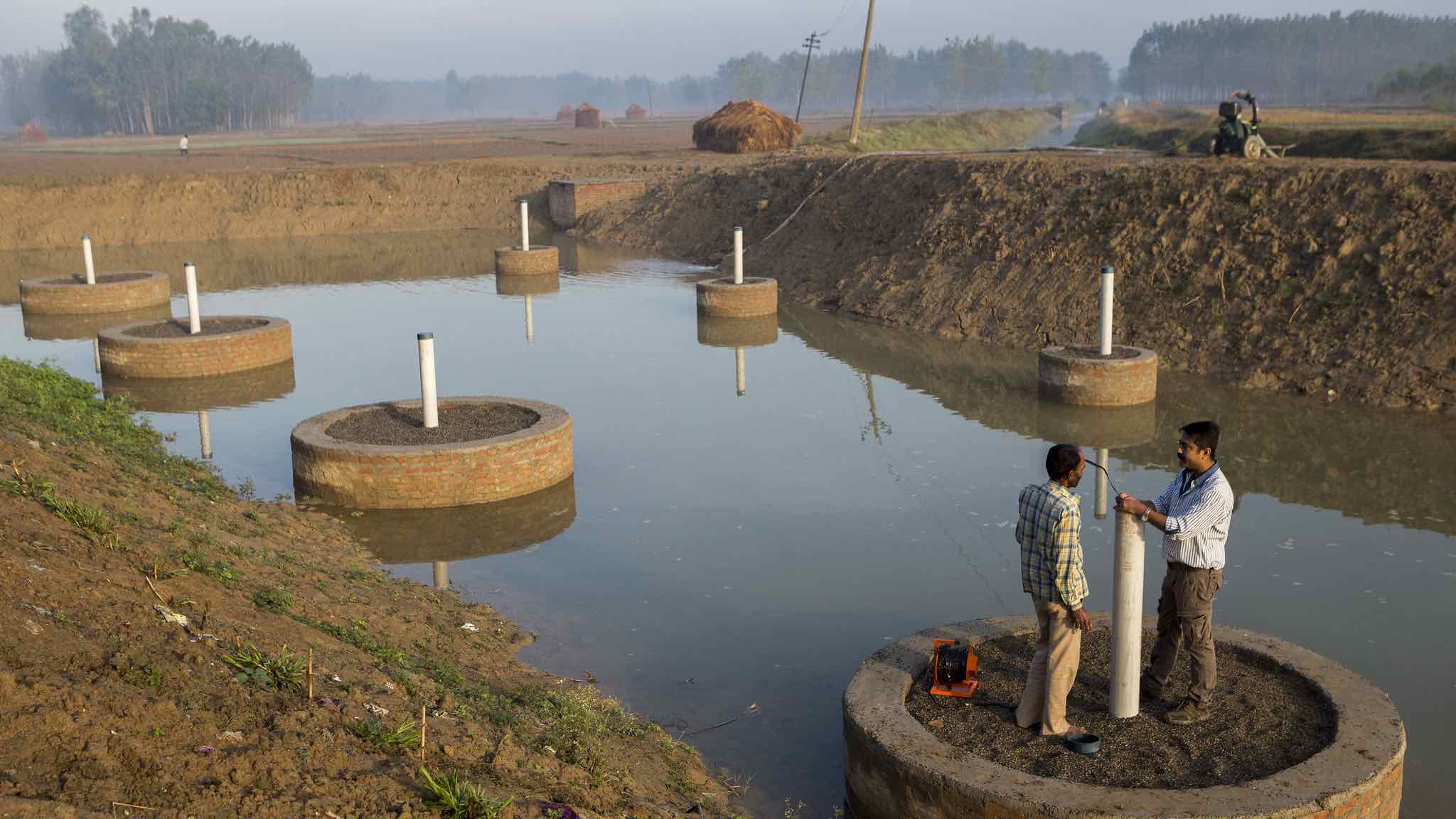Most of the Earth’s liquid fresh water resources are stored as groundwater. Accessible groundwater resources are increasingly extracted for use in irrigated agriculture, industrial and domestic purposes—and constitute the globe’s most extracted natural resource. Irrigation accounts for the lion’s share of groundwater use, and groundwater contributes around a third to 40% of total consumptive irrigation use. Irrigation, in turn, contributes 40% of global food production on just under one third of the world’s harvested area. Not surprisingly, groundwater management and food security are deeply interlinked.
Halting groundwater depletion is essential but can increase food insecurity
While extensive groundwater use has supported economic development and improved food security around the world, it has also led to severe water depletion, reduced freshwater access, and increased inequity in many places that face growing scarcity. Climate change impacts such as droughts further exacerbate these challenges by making rainfed agriculture less viable, disrupting surface water availability, and affecting groundwater recharge.
However, there are major tradeoffs to halting groundwater depletion, according to our study recently published in Nature Sustainability. Although efforts to slow down groundwater depletion need to be urgently accelerated to make fresh water access sustainable, the study shows that—in the absence of other accompanying measures—those efforts would also likely lead to significant food security impacts.
The study finds that ending groundwater depletion alone would lead to sharp declines in food production, especially of rice and wheat, in groundwater-dependent food production systems, pushing up international prices of rice by 7.4% and wheat by 6.7%. Higher food prices, in turn, would make food less affordable for the poor, increasing the number of people at risk of hunger by 24 million, particularly in low- and middle-income countries.
Identifying pathways to sustainable agriculture requires joint modeling of both water and food systems
Groundwater depletion varies considerably across regions and continents. From 1990 to 2020, groundwater withdrawals tripled from 227 billion cubic meters (bcm) to 879 bcm, with 25% of river basins characterized as overexploited, accounting for 61% of total groundwater withdrawals. The top overdraft basins are located in India, Pakistan, China, Saudi Arabia, Iran, the United States, and Egypt, which together account for 83% of global groundwater depletion. Eliminating groundwater overdraft would require a decline in groundwater mining of 342 bcm, with the largest declines in India (164 bcm), China (34 bcm), and the United States (12 bcm), with ripple effects on agricultural production and prices.
The study indicates that removing these water resources from agricultural production systems by 2027 would lead to considerable shifts in food trade and prices, with the largest impacts on LMICs, given thin agricultural commodity markets, limited stocks, and the substantial time it takes for production systems to adjust. In India, wheat and sugar production would be most affected, while rice production would drop sharply in China. The number of undernourished people would increase by 24 million in low- and middle-income countries.
Alternative pathways to equitable and sustainable groundwater use
But such difficult scenarios can be averted, the study finds, if active groundwater conservation measures are paired with policies that expand forms of sustainable agricultural production and food consumption. Using IFPRI’s IMPACT modeling framework, we explore several pathways to reduce impacts on food security from more sustainable groundwater use:
Investments in agricultural research and development, including improved seed technologies and agronomic practices can increase yields of water-constrained irrigated crops, reducing reliance on groundwater and leading to increased crop production and lower food prices. These policy measures could reduce global wheat prices by more than 3%.
Improved management of precipitation through conservation agriculture, mulching, and terracing can benefit both irrigated and rainfed areas. This scenario, in particular, reduces international prices of maize, which remains a largely rainfed crop.
Encouraging dietary changes in high-income countries is another measure to possibly reduce the negative impacts of groundwater conservation. This scenario also lowers food prices, but price declines are very small, except for meat prices that are 1.1% below baseline levels. This scenario also reduces pressure on prices of maize, a major animal feed, but not to the levels of the reference groundwater conservation only scenario.
Conclusion
The growing dependence on groundwater development for agricultural production has put food and water security at risk: Overexploitation of groundwater resources has led to large-scale depletion in key food producing countries, with potential systemic, cascading impacts for global food security and rural livelihoods. Improving the sustainability of groundwater management is essential—but this requires accompanying policy measures to mitigate negative food security and equity impacts. Arresting groundwater depletion without complementary actions would adversely impact food production and prices, highlighting the strong interconnections between Sustainable Development Goal (SDG) 2 (zero hunger) and SDG 6 (water and sanitation). Act we must, however, to avoid ”peak” groundwater depletion, which could expose close to half of the global population to groundwater stress and associated food and water insecurities.
Vartika Singh is a Senior Research Analyst with IFPRI’s Natural Resources and Resilience (NRR) Unit; Claudia Ringler is NRR Director and co-lead of the CGIAR NEXUS Gains Initiative. Opinions are the authors’.
Support for this research was provided by the CGIAR NEXUS Gains Initiative.
Referenced paper:
Perez, N., Singh, V., Ringler, C. et al. Ending groundwater overdraft without affecting food security. Nature Sustainability (2024). https://doi.org/10.1038/s41893-024-01376-w







